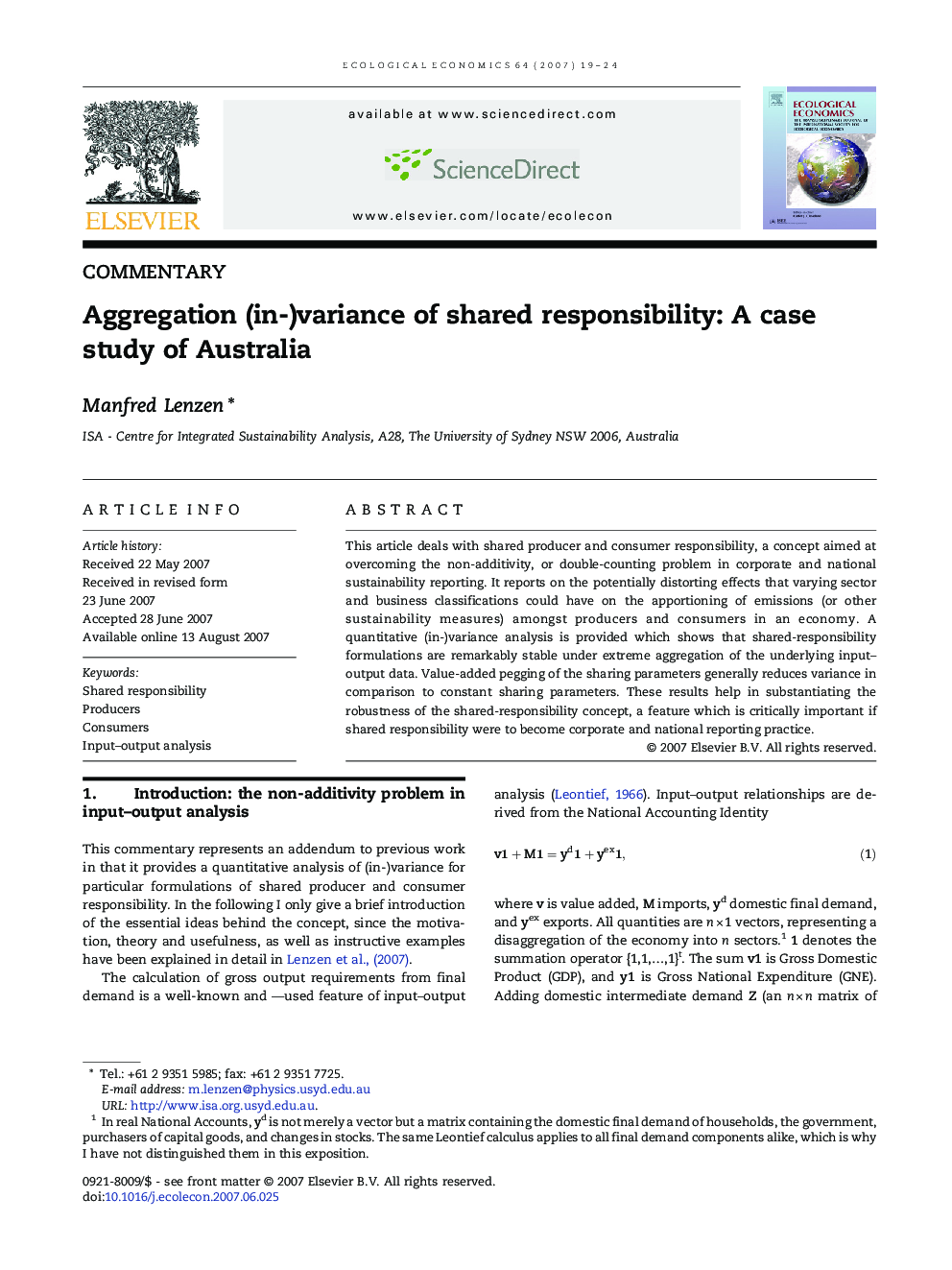| Article ID | Journal | Published Year | Pages | File Type |
|---|---|---|---|---|
| 5052109 | Ecological Economics | 2007 | 6 Pages |
This article deals with shared producer and consumer responsibility, a concept aimed at overcoming the non-additivity, or double-counting problem in corporate and national sustainability reporting. It reports on the potentially distorting effects that varying sector and business classifications could have on the apportioning of emissions (or other sustainability measures) amongst producers and consumers in an economy. A quantitative (in-)variance analysis is provided which shows that shared-responsibility formulations are remarkably stable under extreme aggregation of the underlying input-output data. Value-added pegging of the sharing parameters generally reduces variance in comparison to constant sharing parameters. These results help in substantiating the robustness of the shared-responsibility concept, a feature which is critically important if shared responsibility were to become corporate and national reporting practice.
